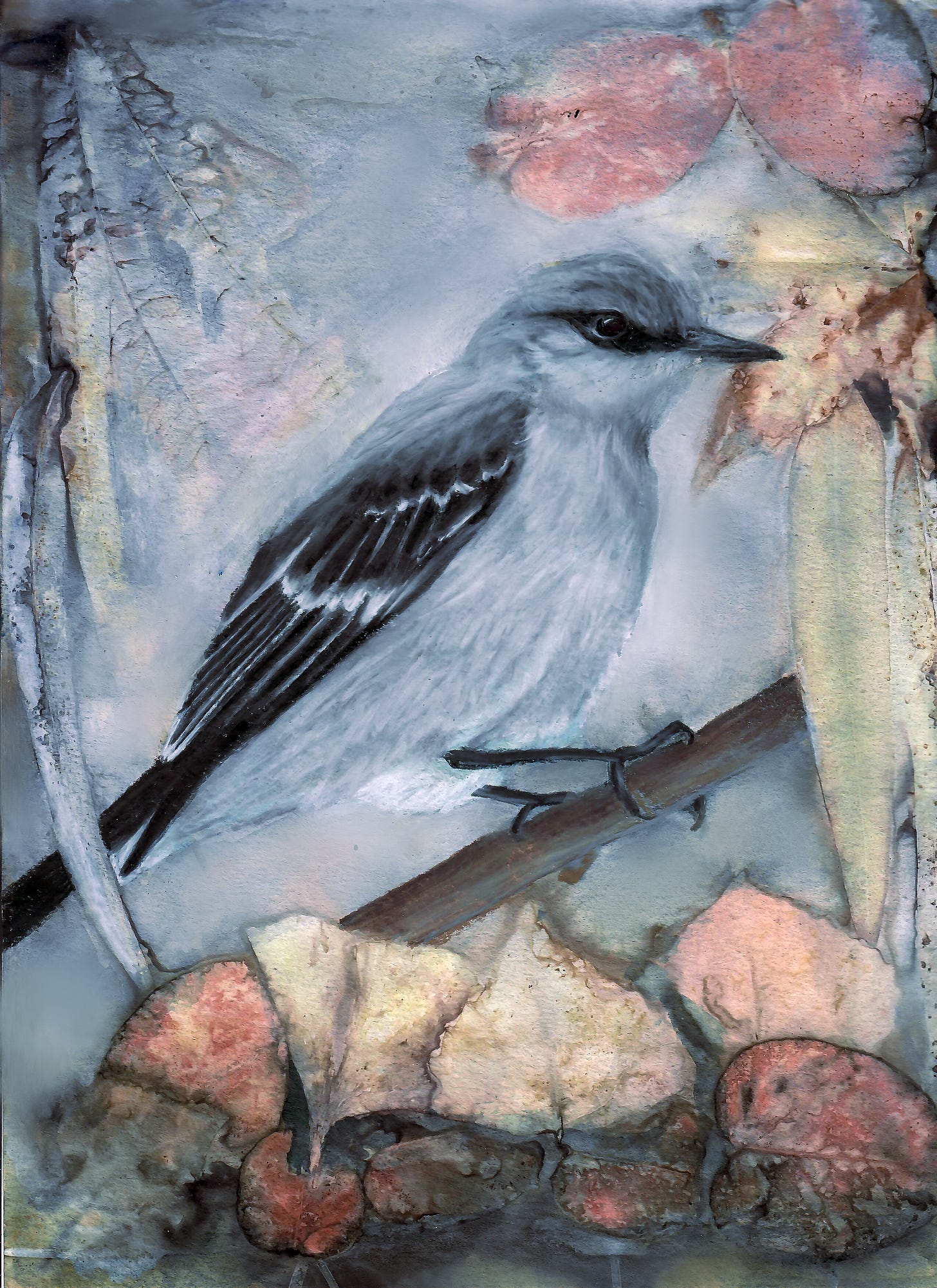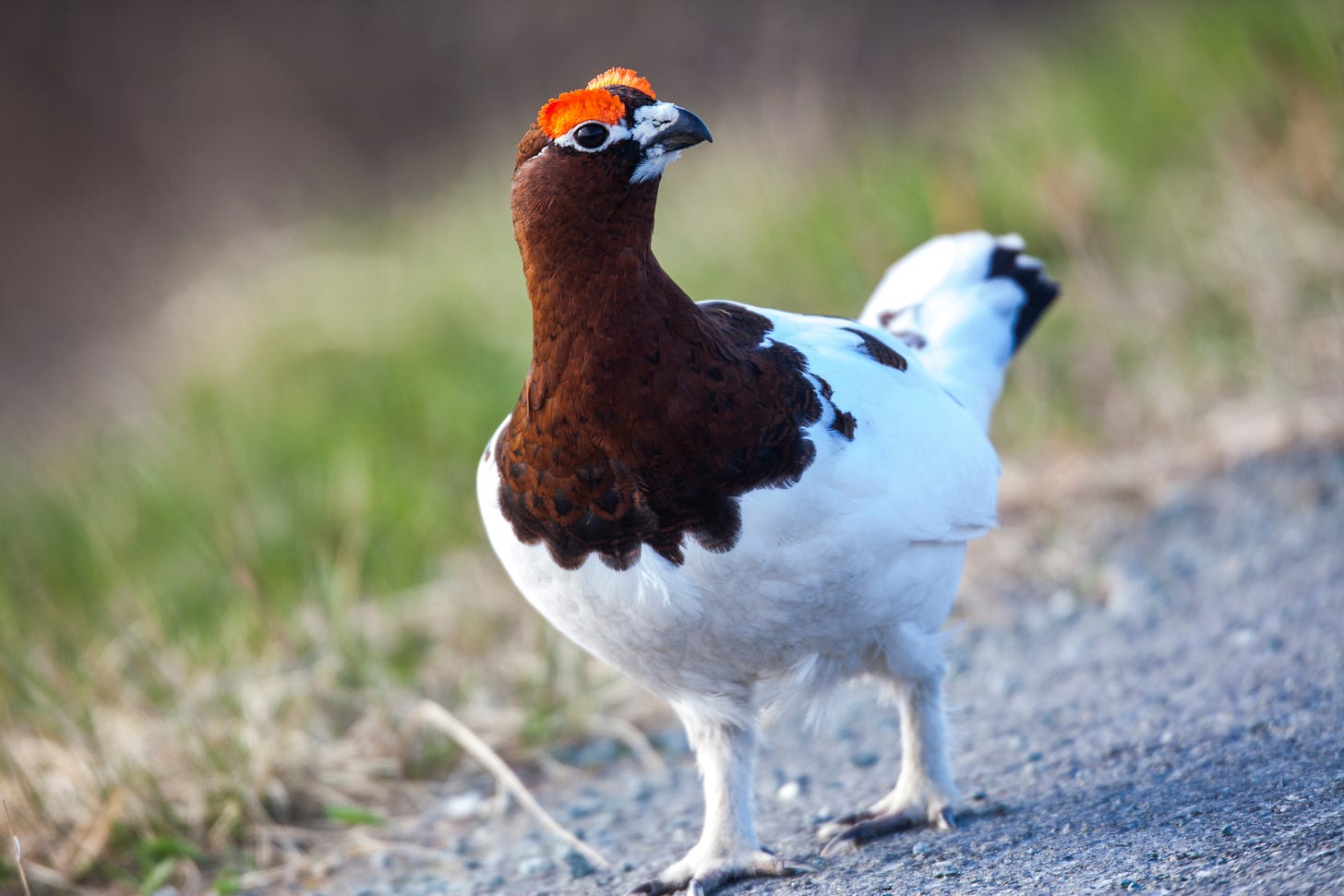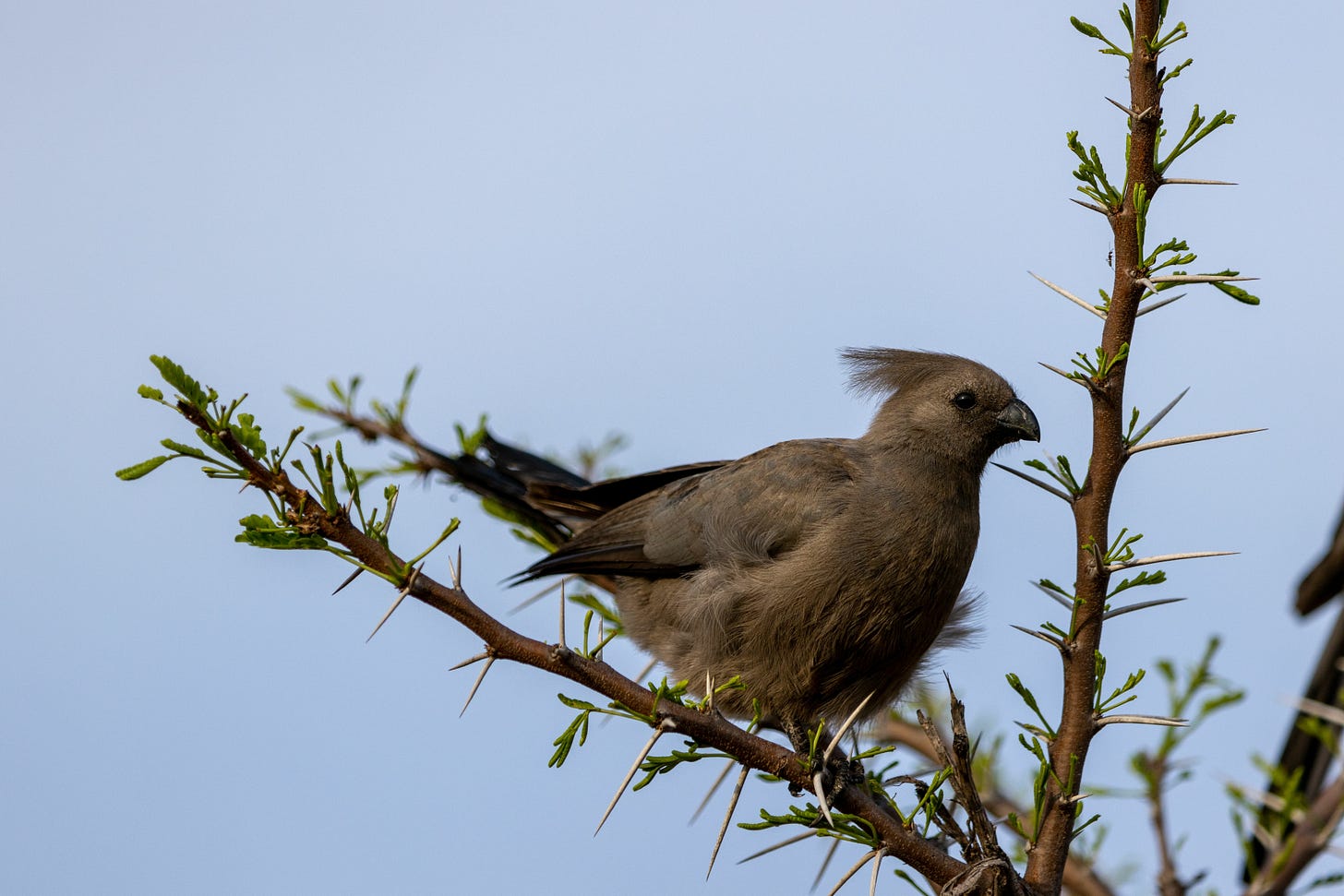Desperation Karaoke
It's what's keeping you up all night.
Across the United States in May and June I see a singular complaint about birds. It is both an annoyance, and for those who are somehow experiencing it for the first time, a mystery. Over and over I see a common frustration expressed in all caps, “WHAT IS SINGING ALL NIGHT?!” Everyone wants to know why it’s in their yard and how they can make it stop.
Most years, I find this amusing, because I know it’s male northern mockingbirds singing for a mate. However, this year, I’m right there with everyone. I have two mockingbirds doing rounds in my yard past midnight. Admittedly, its amazing the number of bird songs and common sounds mockingbirds can imitate. I’ve lived in cities where mockingbirds could mimic a car alarm. (Which says something about that neighborhood.) Still, I could seriously live without the one in my yard that has learned a pitch perfect acorn woodpecker. That’s annoying enough in the daytime.
My friends, if you are here with me, I feel your pain. There is nothing more ridiculous than being kept up all night by a lovesick karaoke-singing songbird. I can sleep through the great-horned owls hooting Marco Polo all winter long, but who can sleep through desperation karaoke? And honestly, it isn’t unusual for bachelor mockers to not find a mate and that makes for a long spring and summer. Female mockingbirds are either picky or they are just as annoyed as we are.
In fairness, with the world full of so many gray and white dandies, why should she be hasty to choose? Sure, she can accept that fact that none of the males she’s interested in dress up for a little spring romance. She can even accept that none of them bust a move on the dance floor or build colorful nests to woo her. She can even deal with the fact all the males that are interested in her seem to think that flashing her (and everyone else) is appealing. Which is seriously weird, but whatever.
But a guy has to differentiate himself somehow. I mean, come on dude, sing her a song she hasn’t heard before.
Everyone sings like house sparrows, goldfinches, and chickadees. BORING! She’s not really all that impressed by the latest hits by kestrels and red-shouldered hawks. And she’s probably not all that into death metal. We could all do without the territorial red-tailed hawk scream.
For those of you blissfully unaware of the joys of mockingbird spring. Here is the daytime version of what I listen to all night.
There must be some way for us to help lonely male mockingbirds find their soulmate and shut the hell up. (Something kinder than wishing a Cooper’s hawk would put them out of their misery. – Although, I might have wished that once or twice.) The animal trainer in me keeps thinking that must be a behavior solution.
What if we could teach the lovelorn mockingbird a song so unique to our region that he would be irresistible? Maybe I could just put a new bird song on a loop for the benefit of my neighborhood mockingbird’s repertoire. There are so many possibilities.
Perhaps the song of the Atlantic puffin.
This is an “interesting” song: https://macaulaylibrary.org/asset/167748861

Or even better, the willow ptarmigan. They have an even more “interesting” song: https://macaulaylibrary.org/asset/166155331
Or perhaps their best bet is the gray go-away-bird. I mean, reverse psychology?: https://macaulaylibrary.org/asset/617823780
Then again, perhaps my solution is worse than the problem. I guess there’s always earplugs. Either way, we’ll all be sleeping peacefully again in another month or so.
In the meantime, those of you who live in Arkansas, Florida, Mississippi, Tennessee, and Texas might want to call your state legislature and complain about your state bird. Ya’all might have made the wrong choice.






Love the article, love the artwork, love your writing! Thank you🥰
When I was about nine I lay on my back in the summer grass, my face tilted upward toward the top of a neighbor's pine, and tried to teach our resident mocker a children's song.
It did not work.